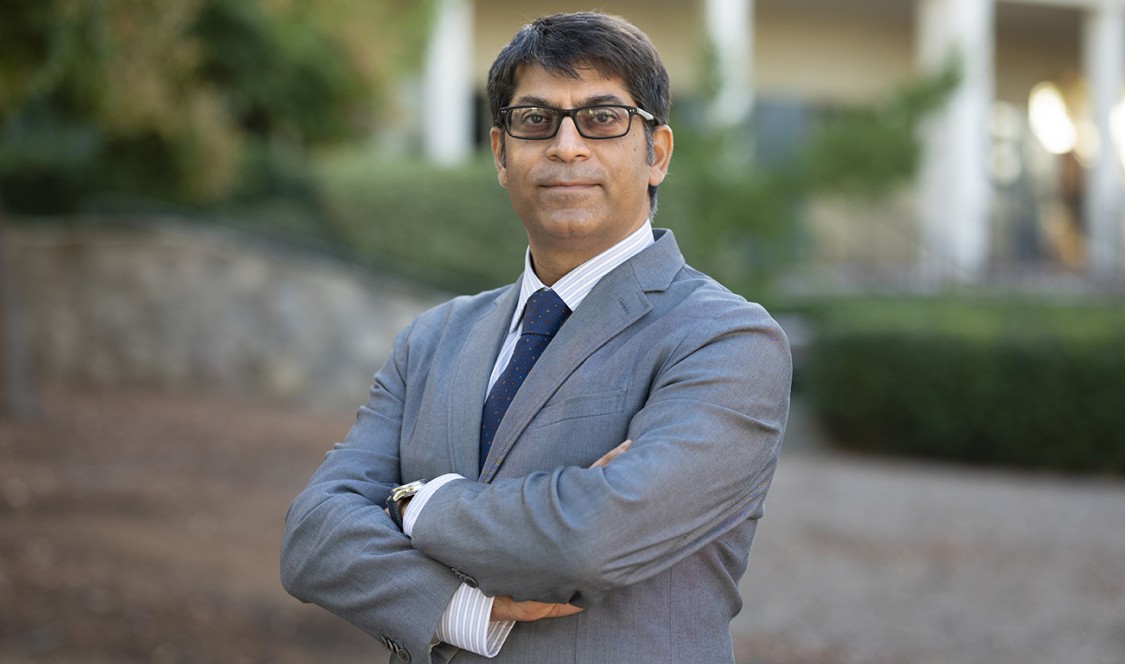Nishant Dass
Charles M. Stone Associate Professor of Finance & Director of the Financial Economics Institute (FEI)
- Expertise: Corporate Finance, Financial Intermediation, Innovation, Fintech
- At CMC since: 2020
- Hometown: New Delhi, India
- Degrees: Bachelor of Architecture (National Institute of Technology), MS in Architecture (University of Michigan), MS in Advertising (University of Illinois), Ph.D. in Finance (INSEAD)
The Future of Finance: Professor Nishant Dass’ mission for CMC's Financial Economics Institute is Fintech. “It's become a buzzword, but I truly think that our society is going through a transformational change. Technology is becoming a factor in every sector, but especially in finance. Fintech is the future of financial services, and we need to prepare our students for that future.”
With advances in technology, we no longer have to rely on intermediaries like banks for making financial transactions; we can simply use an app. But Fintech is not just about payments or crypto. “It is literally anything at the intersection of technology and finance. It can be something as simple as applying machine learning to portfolio strategy or as complicated as building a whole new blockchain.”
It’s more about “tech” than “fin,” Dass says. “Traditional investment banking is not the only ticket to building a career in financial services. Students need to start looking at things like coding in Python and consider a career in emerging industries.”
Real-World Learning: Dass has created a practicum focused on hands-on, real-world projects leveraging technology to solve problems. For the spring pilot, he tapped into CMC’s stellar network of alumni and teamed groups of students with three companies — a hedge fund, an e-commerce firm, and a venture capital firm — and faculty advisors with relevant expertise. This fall, there are five projects.
Last year’s hackathon provided more experiential learning opportunities. FEI partnered with S&P Global, and students across the Consortium were tasked with creating a model to measure risk associated with ESG (environmental social governance) policies.
A Bigger Vision: Dass hopes to build on the practicum and create a pathway for students to specialize in Fintech. “We are trying to bookend the practicum with a front-end principles course and a startup bootcamp, where students can test their ideas in Fintech in a safe laboratory that is a college.”
The startup bootcamp, which will include guided mentorship and a demo day, got major backing when Dass and Drucker School Professor Michael Imerman received a 2021-22 BLAIS Challenge Award.
Addressing Bias: In one practicum project with Wells Fargo this fall, students looked at mitigating algorithmic bias, while working with a computer science professor. “If I’m going to make lending decisions based on a computer program, I need to be sure that that program is not biased in some implicit manner because it’s going to touch 100 times more people than a human lending officer, and financial decisions can have long-lasting impact on the lives of real people.”
Bias is a topic that deserves more attention, especially given CMC’s Presidential Initiative on Anti-Racism and the Black Experience, Dass says. Last spring, he organized a panel on the topic for the Office of Alumni and Parent Engagement; it included an ethicist, a computer scientist, and the CTO of a startup creating software that mitigates bias. He also invited a credit risk officer to speak at the Athenaeum next semester.
Teaching Kids to Fish: In line with CMC’s Presidential Initiative on Anti-Racism and the Black Experience in America, Dass launched a financial literacy summer camp for high school students. His impetus was the revelations of the 2008 mortgage crisis, when it became clear that a large percentage of junk mortgages were sold to minorities from underprivileged backgrounds. “If we want to address racism, we need to make people more aware of their financial choices and rights.”
Over a week, Claremont High students learned the fundamentals of credit cards, investments, budgeting, loans and other practical topics from a variety of CMC faculty and administrators. They also received $100 to get “banked” with a Fintech startup, an online bank founded by Wole Coaxum, an African-American Wall Street banker. “We’re teaching them how to fish. The objective is to empower these kids.”

